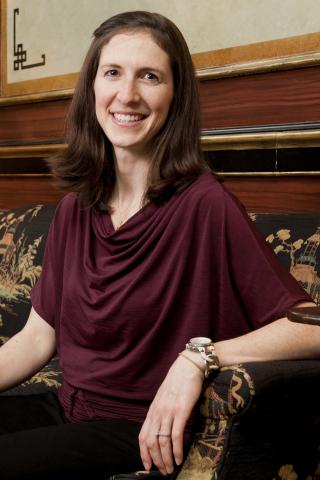Leah I. Bendavid

Leah Isseroff Bendavid’s research focuses on innovating and advancing state-of-the-art solar energy technologies using computational quantum chemistry. Her research leverages the power of computational chemistry to probe the physical, optical, electronic, and chemical properties of materials and molecules on an atomic level. She is particularly interested in novel nanocomposite photovoltaic and photocatalytic materials and interface modification in hybrid organic-inorganic photovoltaics.
Leah Isseroff Bendavid received her BE in chemical engineering from The Cooper Union in 2007 and her PhD in chemical engineering from Princeton University in 2013. After completing postdoctoral research at Stanford University, Dr. Bendavid joined the Vassar College Chemistry Department in 2015.
Dr. Bendavid’s research focuses on innovating and advancing state-of-the-art solar energy technologies using computational quantum chemistry. Her research leverages the power of computational chemistry to probe the physical, optical, electronic, and chemical properties of materials and molecules on an atomic level. She is particularly interested in novel nanocomposite photovoltaic and photocatalytic materials and interface modification in hybrid organic-inorganic photovoltaics.
Dr. Bendavid teaches General Chemistry (108/109) and Physical Chemistry (352).
Research and Academic Interests
Physical Chemistry
Computational Chemistry; materials chemistry and solar energy conversion
Departments and Programs
Courses
CHEM 125 Chemical Principles
CHEM 292 Computational Techniques in Chemistry
CHEM 352 Physical Chemistry: Molecular Structure
Grants, Fellowships, Honors, Awards
2017. Awarded a Visiting Faculty Program Fellowship in the Department of Materials and Interfaces at the Weizmann Institute of Science, one of the world’s leading basic research institutions. Bendavid’s fellowship will support a four-month visit to join the Quantum Theory of Materials research group of Professor Leeor Kronik, during which she will use first-principles calculations to investigate the structural, electronic, and optical characteristics of molecular solids.
